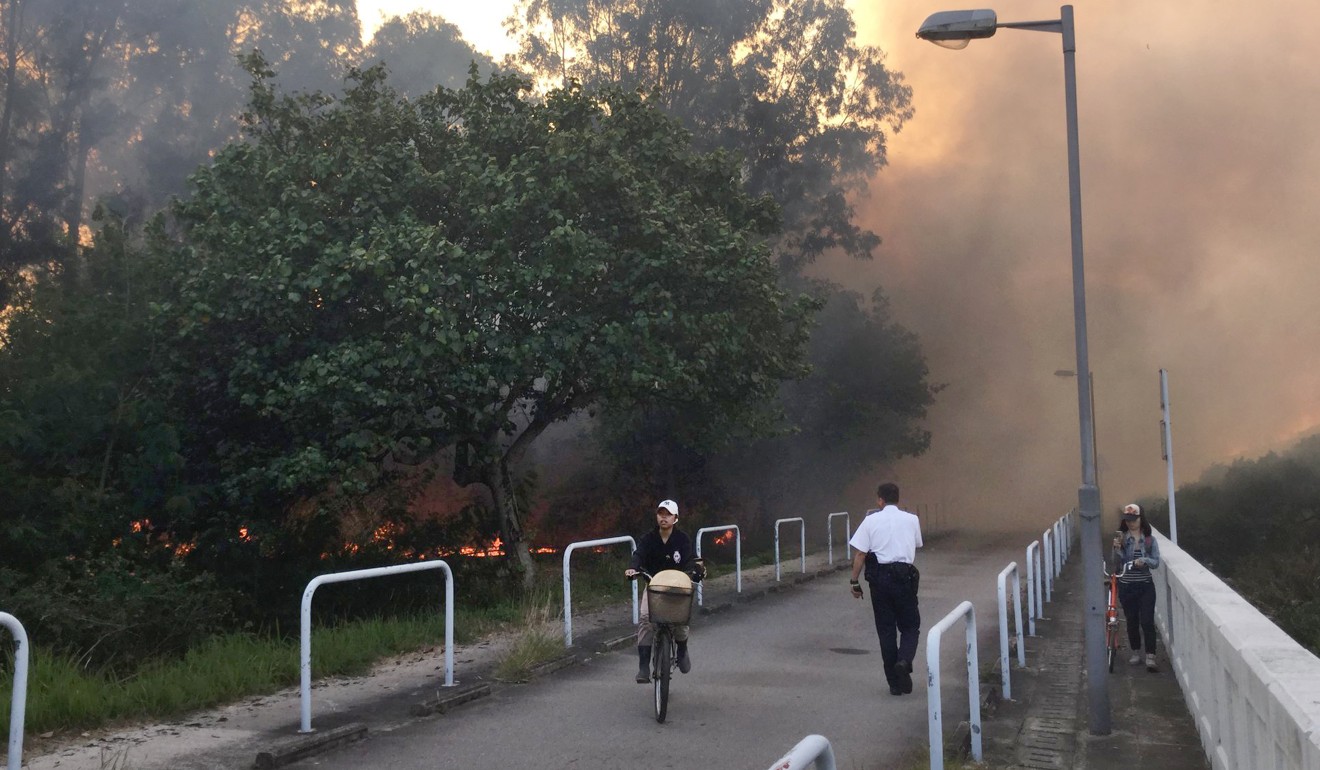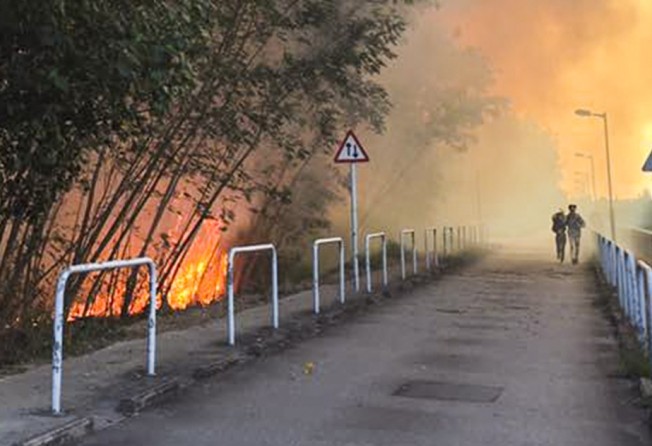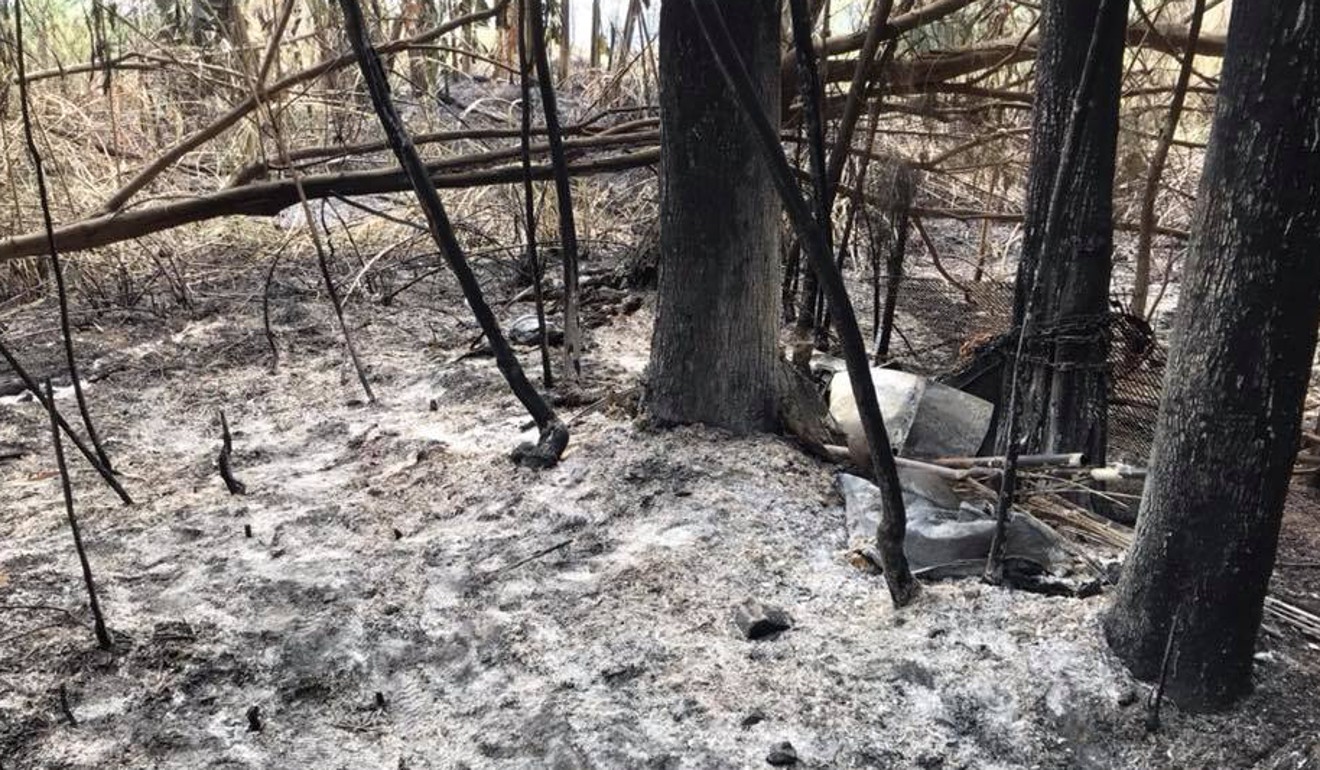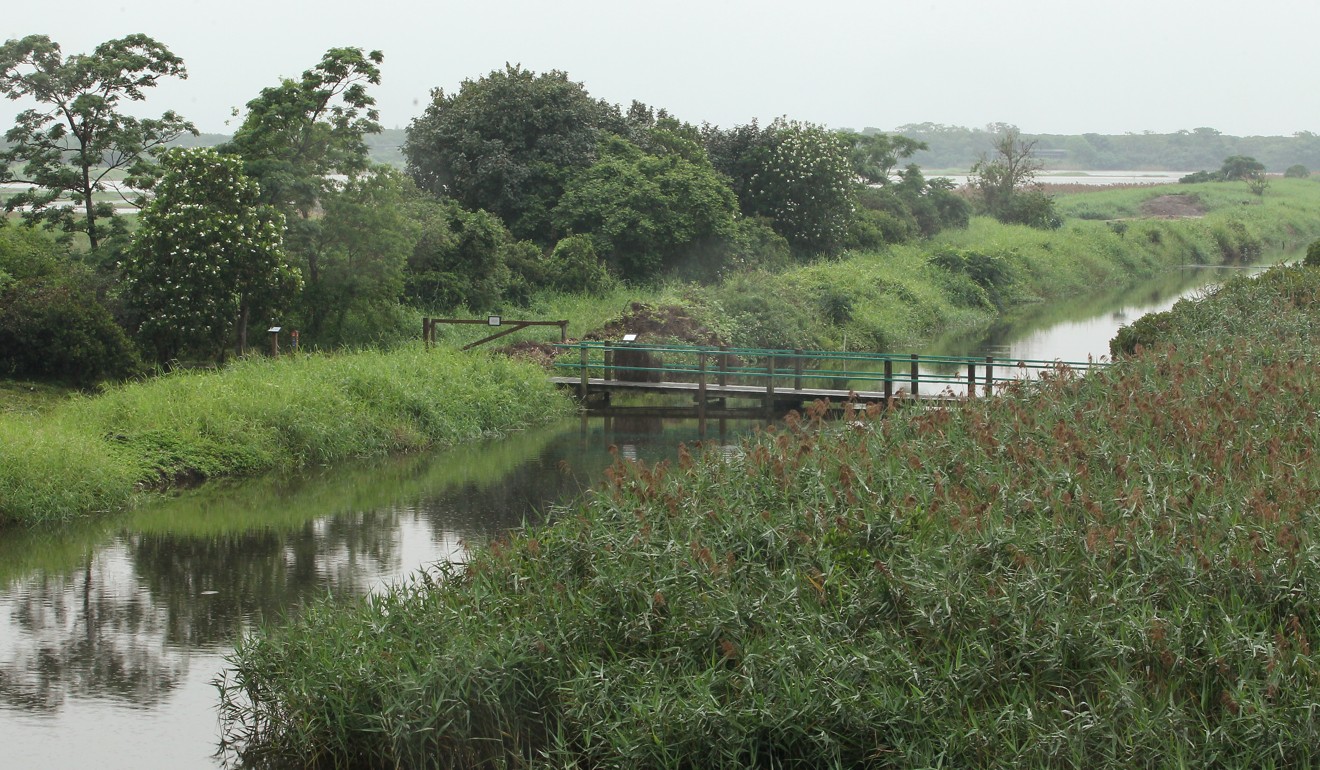
Two fires in two days at Hong Kong wetland ‘suspicious’
Only seven hours after firefighters subdue one blaze at Nam Sang Wai, another breaks out

A hill fire broke out in a picturesque Hong Kong wetland on Tuesday afternoon, not long after firefighters had finished dousing another bush fire nearby.
The latest blaze started in Nam Sang Wai in the northwestern New Territories shortly before 3pm on Tuesday, burning on two fronts stretching 20 metres each along slopes, according to the fire department.
Its spokeswoman said four fire engines were sent to the scene, with support from a government helicopter.
At 5.30pm, she said firefighters were still battling the blaze with beaters and small water pumps. There were no reports of injuries.
The first round of bush fires was reported shortly after 3pm on Monday. Six fire engines were sent, with about 30 firefighters. Government Flying Service helicopters water-bombed the flames.
Chong Wing-hei, a Government Flying Service manager, said a helicopter was sent to fight the blaze at about 4.30pm but withdrew at sunset on Monday. Another helicopter went to the scene at daybreak on Tuesday.

According to the fire department, the blaze was put out at 8.15am on Tuesday, only about seven hours before the second one would break out.
The spokeswoman said there was no report of injuries and they were still investigating the cause of the blaze.
Democratic Party legislator and Yuen Long district councillor Roy Kwong Chun-yu said the fires were “strange” and “suspicious”, noting that they broke out at several areas at the same time.
“The area has been subject to many strange incidents including sporadic bush fires, the drying-up of ponds and tree chopping,” he said during a site visit.

He said there had been a suspicious fire at a reed bed in Nam Sang Wai in 2010 and another in 2016 about the size of a football pitch on an area owned by a private developer.
Yuen Long district councillor Man Kwong-ming said the fire was unlikely to have been started by the three or four households that live by the fish ponds.
“Many tourists go there for cycling, hiking and playing with drones. It’s possible that something may have ignited in the dry grass and then been fanned by the heavy wind,” he said.

“It’s too early to say whether it was an accident or deliberate.”
On Tuesday afternoon many of the grassy areas and reed beds had been burned and the earth scorched.
WWF Hong Kong’s director of wetlands conservation Dr Michael Lau Wai-neng said the situation was worrying as it was wintering season for many migratory birds, which shelter in the wetland’s trees. Many wading birds also depend on the wetland ecosystem.

Nestled in northern Yuen Long near Mai Po nature reserve, Nam Sang Wai is zoned for “other specified uses” annotated for comprehensive development but with a wetland enhancement area, which means proposed developments are scrutinised very strictly.
A spokesman for the Agriculture, Fisheries and Conservation Department said it had dispatched staff to the site to survey the damage and found that the fire had affected about six hectares in total.
Affected were numerous abandoned fish ponds, reed beds and trees, which had been charred black.
“According to our observations, no wild animals or migratory birds were killed or harmed by the fire,” the spokesman said. “The department will closely monitor the ecology of the site and assess whether there could be any negative impact.”